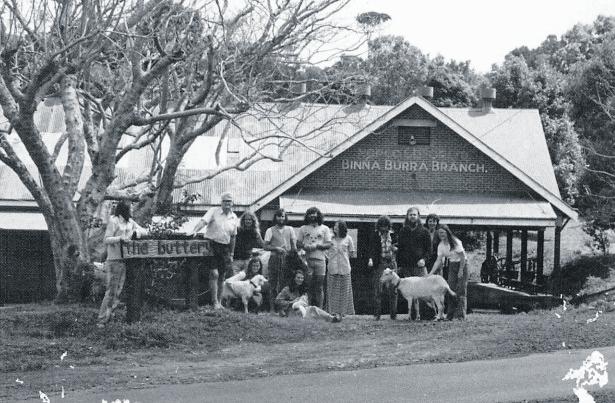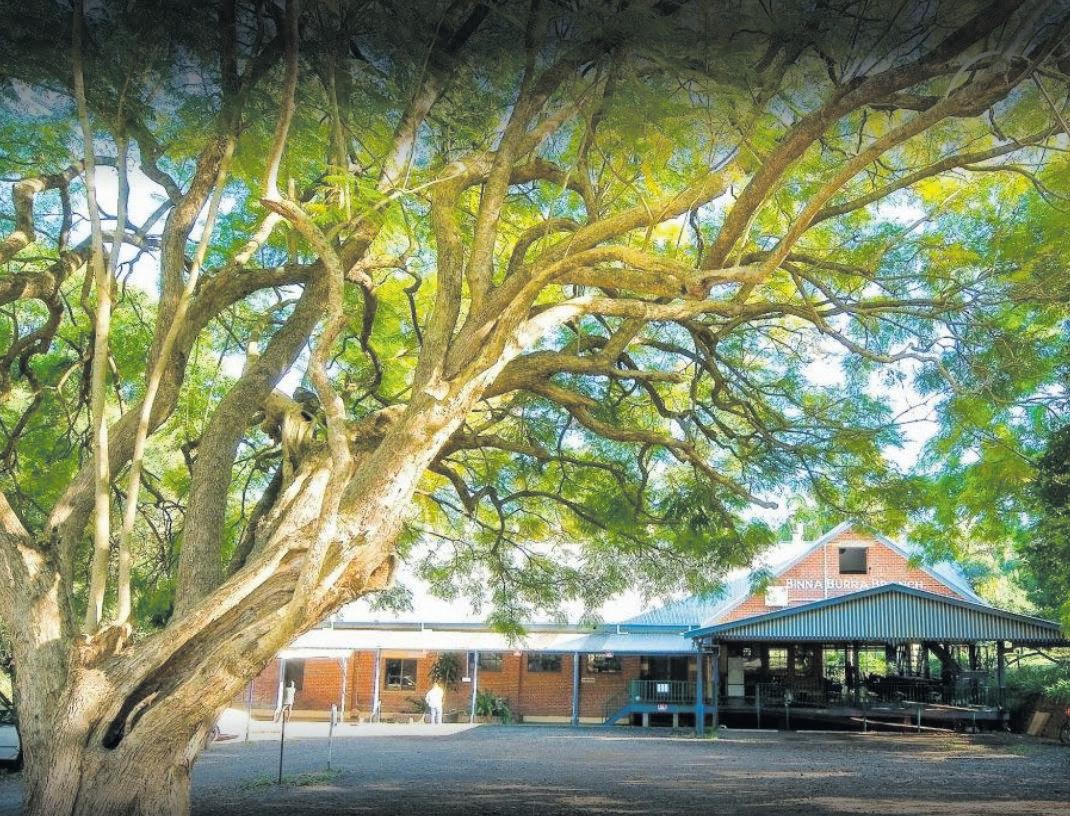
5 minute read
50 YEARS OF TREATING SUBSTANCE ABUSE
By Samantha Elley
A recent report into drug induced overdoses, according to The Buttery’s Leone Crayden, has highlighted that since 2001, 37,000 people in Australia have lost their lives through drug induced deaths.
Seventy fve per cent of these deaths were unintentional.
Opioids continue to be the drug of choice with 45 per cent of these unintentional deaths coming from fentanyl and stimulants such as cocaine and methamphetamine.
For the past 50 years
The Buttery has been working with people suffering from substance abuse, with around 10,000 participants going through its residential program and in excess of 20,000 through the outreach programs.
Ms Crayden is The Buttery’s frst female CEO and has been guiding the rehabilitation centre for the past fve years and refects on the achievements over that time.
“In terms of income over the past fve years, we have gone from government grants of $5 million to $15 million,” she said.
“In terms of treatment we have diversifed in what we do.
“We’ve always been seen as an addiction service at the core and it still is, however, we have a strategy around ill mental health.
“We’ve always looked at people and supported them for substance use disorder and addiction but now we look at it more broadly.
“Substance abuse is often a manifestation of ill mental health so we have expanded our services of a primary diagnosis with mental health conditions and substance codependence.”
The Buttery’s history
In 1972 Captain John McKnight was working as a Church Army Offcer in the Anglican parish of
Ballina.
There was an increase of young people to the Northern Rivers, following the Aquarius Festival and Captain McKnight felt there was a need for youth services and a base for outreach to the Nimbin, Mullumbimby and Lismore communities. His vision was to develop a Christian community where people needing assistance could come, contribute and also receive help.
When the old Norco butter factory at Binna Burra was offered to him, that is where he established his community.

In 1975 The Buttery received a boost from the government in recognition of the work they were doing.
As interactions with drug affected people increased in the area the Christian community became more focused on providing an outreach mission of a therapeutic community of treating drug dependence.
In 1978 a grant was received from the NSW Drug and Alcohol Authority and work was begun on expanding the accommodation facilities.
Present day
The Buttery now runs programs from Port Macquarie up to the Tweed. Services include Safe Havens for food affected areas and drop in services for mental health distress.
“The number of people that drop into these services is astonishing,” said Ms Crayden.
“In a month over the four areas (where the safe havens are) it would to restart their lives from whatever darkness they needed to come out of. There are, however, constant issues on a daily basis that needed to be addressed as they are very practical by nature. physical withdrawals.
“Sewer connection is a passion of mine,” she laughed.
“I don’t want The Buttery to be reliant on septic tanks.
“If there are any major building companies out there who would love to do a project to beneft others, we would love to hear from you.” as a graduate,” said Ms Crayden.
There aren’t always successes, but Ms Crayden said that is a normal part of recovery.
Connection to its roots be between 700-1000 people.
The Buttery still has connections with the Christian community since its beginning.
“We also run a HASI Plus program (Housing and Support) which is a 24 hour service.”
Ms Crayden said this was where those suffering severe mental illness could go back into the community.
“They live in a property that we manage and they learn to be tenants again,” she said.
“This is such a game changer where they are supported in their transition until they move out.”
The services The Buttery provide continue to grow with a program that has just been funded through Services NSW in the Kempsey and Grafton area, providing support for those leaving incarceration.
“Many people who come through The
“We also got connected
“Relapse is a major part of recovery and it does happen and we do see people come back,”
“We have a great connection with the Byron parish and All Souls at Bangalow and with the Bishop of the Grafton archdiocese,” said Ms Crayden.

“Residents do go to church and although we don’t see ourselves as a faith-based organisation we deeply respect the church community.”
Future plans to town water at the Binna Burra site last year and got fre hydrants to make the place safer.” she said. “But we also see them come back as volunteer drivers, mentors and giving back to the people who are there now.”
Looking to the future, Ms Crayden said she would like to see another rehabilitation service with 100 beds built on the Northern Rivers that is purpose built.
The building and cottages where residents live are also in need of improvement and these are goals that Ms Crayden and The Buttery board are working towards.
Ms Crayden said she would like to see an overhaul in the accommodation at Binna Burra.
Not everyone is a resident either.
The Buttery conducts shorter programs of up to 4-6 weeks for people who pay to use those services.
“These are for people whose lives may not suit living on site and who may want anonymity,” said Ms Crayden.
“The money from these courses go back into the free programs.”
The feedback from those who have gone through the program has been very positive, according to Ms Crayden.
“We get fantastic feedback,” she said.
“We shouldn’t have 80 people on our waiting list,” she said.
“I would also like to partner with frst nations people and establish a child/family rehab service.
“So that we have something to accommodate their cultural needs.
“We need more intervention and primary prevention services going out to schools and educating kids and the health of their bodies and the harm drugs and alcohol can do.
“I want people with lived experience to share their lives.
Buttery come from correctional centres,” said Ms Crayden.
“This program will help them live in the community and we will provide rehabilitation if they need it.”
Ms Crayden said, despite the constraints of constantly applying for funding, The Buttery and all its services were thriving, helping people
“You have made that brave decision to change your life,” said Ms Crayden.
“As you know you are harming your life and those who love you, and then you come to substandard accommodation. It seems unfair.
“You will be going through a lot of therapeutic treatment and
“We use a tool for psychometric testing and we have seen a difference in residents’ alcohol and drug use and mental health over one month, six months and 12 months.
“We can’t always do that but we make an essential try at that to know we make a difference.”
The Buttery currently has a waiting list of 70-80 people and their facilities are full.
“We have to wait until someone leaves
“Sixty per cent of our workers have a lived experience and we value it as a form of qualifcation, but we value qualifcations as well.
Time to celebrate The Buttery will be celebrating their 50 years of service to the Northern Rivers with a dinner this Thursday night with previous board members in attendance, along with many who have benefted.
If you would like to help support The Buttery in its work go to buttery. org.au where you can make a tax deductible donation, bequests or even volunteer.
When the dreams become tarnished
Title: The Price We Pay

Author: Bob Marmion
Price: $19.95
Publisher: Shawline

Publishing
By Samantha Elley
Bob Marmion joined the Victorian Police Force in 1976 as a young and naïve 18-year-old.
He calls himself ‘a shiny penny’.
Fi een years later that shiny penny had become a deep tarnished colour, when he was discharged for being medically un t.
Bob gives a raw insight into his time as a police o cer through those 15 years, providing an understanding to the reader as to why it led him to su er Post Traumatic Stress Disorder (PTSD), a broken marriage and ending up with a drug and alcohol addiction.
No punches are pulled when Bob describes the tasks he undertook and the jobs that led him into dangerous places.
His rst account is of an armed robber that at one point is directing a ri e at Bob’s chest.










